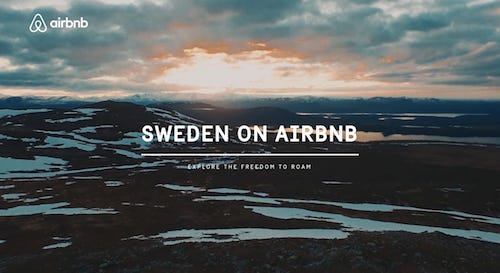No deal.
Uber for X is over. I know I say that a lot in this newsletter but this time I’m serious. Uber for X is over because even Mark Cuban is tired of hearing about it. Cuban, the Shark Tank host and Dallas Mavericks owner, famously passed on investing in Uber, a decision he has called his biggest mistake. Cuban was worried about the potential for local regulations and entrenched taxi lobbies to derail Uber. He has since amended that opinion and praised Uber CEO Travis Kalanick because “where I saw regulation, he ignored it.”
Cuban still regrets missing out on Uber but he has no love for the Uber-for-X crowd. “The ‘Uber of something,’” is the pitch he is most tired of seeing, he tells Wharton’s Adam Grant in a new Q&A. Cuban doesn’t elaborate, but I did a little research and found that, in the last two seasons of Shark Tank alone, Uber-but-for pitches have included: “Spoonful of Comfort,” a soup delivery service for sick people; “Ice Age Meals,” a food-delivery service for the paleo diet; “Getaway” for renting campsites with tiny houses (this may be more Airbnb-for); “Rent Like a Champion,” for renting homes in college sports towns during game weekends (ditto); and “brellaBox,” an Uber for umbrellas. Yes, I can see how that would be tiring. Unrelated to Uber there was also “Potato Parcel,” a business that sends messages on potatoes and makes $25,000 a month (Shark Tank invested).
Other signs that Uber for X is over include the many startups that have shut down or pivoted away from their humble Uber-for-X beginnings (a non-exhaustive list includes: Washio, Prim, Homejoy, Spoonrocket, Shuddle, Sidecar, Bento, Dinnr, Canary, Exec, Caarbon, Vatler, Luxe, Cherry, and Hello Parking); the ongoing implosion of the food-delivery sector, once the most robust Uber-for-X category; and the precipitous drop in funding to private on-demand tech companies. I will be sad to see all of the Uber-for-X dreamers move on to new startup tropes. Let us now remember them in verse.
Price discrimination.
When Uber introduced upfront pricing in the US last year, its system of charging riders a fixed price when they book a ride, it also decoupled driver earnings from passenger payments. The price that Uber charges to riders is its best guess at what a trip will cost; the sum it pays to drivers is a metered rate based on time and distance. The trouble was that Uber hadn’t actually told drivers (or, really, anyone) that it was doing this, and they started to get suspicious. I had asked Uber repeatedly about the parameters it set for upfront pricing, and whether it was using the difference between what a rider paid and a driver earned to improve its margins, and received various unsatisfying, mostly off-the-record responses. But last week, in an interview with Bloomberg, Uber finally revealed a bit more about how its pricing model actually works:
The new fare system is called “route-based pricing,” and it charges customers based on what it predicts they’re willing to pay. It’s a break from the past, when Uber calculated fares using a combination of mileage, time and multipliers based on geographic demand.
Daniel Graf, Uber’s head of product, said the company applies machine-learning techniques to estimate how much groups of customers are willing to shell out for a ride. Uber calculates riders’ propensity for paying a higher price for a particular route at a certain time of day. For instance, someone traveling from a wealthy neighborhood to another tony spot might be asked to pay more than another person heading to a poorer part of town, even if demand, traffic and distance are the same.
Economists call this system, of charging people based on their willingness or ability to pay, price discrimination. Unlike other forms of discrimination, it’s not necessarily considered bad. That basic idea is that consumers have a certain amount they are willing to pay for any given thing, and companies have a price that they charge. The difference between what the company charges and the customer is willing to pay is called, in econ lingo, the consumer surplus. In a perfect econ world, what Uber is doing is actually very efficient. That is, by charging people based on their willingness to pay, Uber isn’t overcharging them for its service, but simply capturing all of the consumer surplus.
Of course, how economists see the world and how most people see the world are not the same at all, and I expect many Uber riders will not be pleased to learn that the company is charging them for each trip by going “hmm, how much do we think this person will pony up?” The data isn’t that granular yet—Uber says it’s based on “groups of customers” rather than individuals—but you know what I mean.
Personally I also have a hard time reconciling this new approach to pricing with Uber’s longstanding defense of surge, its infamous system of raising prices alongside demand, which boiled down to, “the people willing to pay the most should always be able to get a ride.” With upfront/route-based pricing, the company seems to be implying that it can grow its consumer base and increase overall access to Uber by charging higher prices to rich people and lower prices to poor ones. Those two beliefs do not go together! Despite Uber’s best efforts to make everyone an Uber driver, it has a finite supply of labor that cannot always meet demand from riders. In those instances, you cannot both believe that the ride should always go to the person willing to pay the most, and that people should have access to your service at prices that work for them. As BuzzFeed’s Tom Gara wisely said, “I can’t tell if this is extremely capitalist or extremely communist or both.”
Allemansrätten.
Sometimes you have to dream big in the sharing economy and this week Sweden is doing just that. Visit Sweden, the official website for tourism and travel, has just listed the entire country on Airbnb in a truly elaborate advertising stunt. The main page is “Sweden on Airbnb”—“a home with with all the necessities and amenities that any great home should have”—and its sublistings are delightfully detailed. They include “Rustic Forest Retreat in Vintage Style” (amenities: wild pets, snacks, real air conditioning) and “Rugged Cliffs Shaped by the Ice Sheet” (room type: open plan; accommodates: everyone).
At the bottom of each Sweden-on-Airbnb listing is a link to actual homes on Airbnb in Sweden, many of which seem equally fanciful. The first result when I clicked in from the rustic forest this morning was “Big tent w/ hot tub & rowing boat,” a self-described “old swedish military tent” that contains a wood-fired stove and can be instant-booked for $43 a night. The campaign is branded “Allemansrätten,” which Visit Sweden explains as “The Right of Public Access” or “the freedom to roam.” Airbnb worked with Visit Sweden on the project, which it called a “first of its kind collaboration.” I’d imagine Airbnb was just glad to have such a friendly interaction with a country in Europe, when cities like Barcelona and Berlin are cracking down on its short-term accommodations. I look forward to seeing other countries list themselves on Airbnb until the whole world is one giant home rental. You can always dream bigger.
Food subsidies.
Elsewhere in dreaming big, investors are still dreaming of a profitable food-delivery business. They recently put $30 million into Eat Club, a catering service that makes and delivers meals from a menu of 20 to 25 choices every day for mid-sized companies (250 to 1,000 employees). Eat Club operates in San Francisco and Los Angeles and has plans to expand to New York. The company says it’s profitable, with $50 million in revenue expected this year, and its investors attribute that success to an entirely un-Uber-like model:
Eat Club’s road to profitability since starting seven years ago by cooking meals in company-owned kitchens could serve as a model. Brian Frank, who invests in young food companies through his FTW Ventures fund, said working with offices might be the best option for meal delivery. “Food delivery is going to be in demand no matter what,” said Frank, who’s not an investor in Eat Club. “Selling directly to enterprises, rather than fickle consumers, presents a more stable revenue stream. It also lowers the complexity of your logistics.”
Stable revenue! Simpler logistics! Company-owned kitchens! That is not the on-demand, consumer-facing, asset-light model that Uber proselytized and so many startups have failed spectacularly at trying to replicate. “It has become obvious that you can’t make money on individual deliveries; the cost of a single meal is too low to hide your associated fees,” says Eat Club investor Howard Hartenbaum. “Who wants to subsidize a company with no path to profitability?” Until recently, a lot of people. Never forget the Sugar Shack cookie.
Elsewhere, here is Postmates CEO Bastian Lehmann talking in prepared congressional testimony about the “power of Postmates and the on-demand economy” and the “economic empowerment” it provides to independent-contractor couriers. That second point is fun because it comes right before Lehmann gets to the real purpose of his testimony, which is to make a case for using robots in the Postmates supply chain.
Both Postmates and its competitor DoorDash argue that delivery bots are less likely to replace human workers than to complement them. The idea is that the bots can handle short-distance deliveries that their human counterparts might not consider worthwhile. “We at Postmates do not see a world in which robotics would be the ultimate delivery mechanism,” Lehmann will say in his testimony today. Also true but less likely to be presented before Congress is that Postmates was spending $120 to onboard each new courier as of June 2016 and has struggled with high churn. A more cooperative robot workforce is something it would probably welcome.
Other stuff.
Five Things Tech Companies Can Do Better. Uber threatens to fire Anthony Levandowski. Uber seeks new general counsel. Tesla spurned Uber. Ford ousts CEO to refocus on driverless cars. Lyft partners with Delta for free airline miles. Canada town hires Uber as public transit. Uber tests a smarter UberPool. Hong Kong Police Arrest 21 Uber Drivers. SFO cashes in on ride-hails. Uber and Lyft will return to Austin. Appear Here raises $12 million for pop-up shop marketplace. Nestaway in talks to raise $40+ million. Hotels hire robots. Driver guild files FTC complaint against Juno. Union displeased with Uber in London. Racial profiling on Nextdoor, which expects tens of millions in revenue this year. New York shuts down illegal rooftop Airbnb. Kansas City weighs regulations for Airbnb. Gwyneth Paltrow Just Calls Airbnb’s Brian Chesky When She Needs Advice About Goop. Target looked at buying Casper. Airbnb’s Joe Gebbia launches furniture line. The World’s First Unicorn-Horn Store Is Open for Business in Brooklyn. GoFetch expands to Montreal. Sharing Cities Summit. Uber for truckers. Airbnb for hunting. Softbank’s tech fund becomes world’s biggest. Subscription tap water. Stop comparing health care startups to Uber. Results from Saturday’s Airbnb Brooklyn half marathon.





